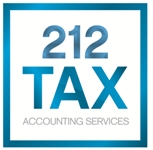The federal government loves it when taxpayers decide to go back to school, and the IRS rewards these motivated individuals with several beneficial college tax deductions. Education tax deductions can even help you pay for grad school — but only if you meet certain requirements.
Grad Student Tax Deductions
The graduate school tax deduction is a great way to get the most value possible out of your education while enhancing the skills you need to further your career. Note that you must enhance the skills you need to further your career. If you want to study art history while you are working as an actuary at an insurance company, you may be out of luck. The IRS limits tax deductions for tuition to a trade of business that you are “carrying on.” That means you must study in the same field where you are currently working.
Secondly, your grad school education must maintain or improve the skills you need in your career. If you are an accountant and you want to become the CFO of an accounting firm, getting an MBA is helpful — but getting a Master’s in literature is not. The degree also cannot meet minimum qualification standards. That means if you need the degree to be qualified to work, you will not be able to deduct the tuition.
The IRS also imposes limits on the education deduction. Qualified education expenses are deductible if they exceed 2 percent of your adjusted gross income. You must also itemize your deductions by filing Form 1040. On the plus side, you can deduct tuition even if you take out a loan to pay for your education. You do not have to wait until you repay the loan to deduct. Other deductible education expenses include books, required computer and peripheral equipment, and fees.
When Taking Tax Deductions for Students Is Not Clear
As you can probably imagine, these rules leave a lot of room for interpretation. It is easy to think that going to school full-time probably eliminates the possibility of deducting the education expenses, as you may not be actively involved in your industry at the time of attendance. This is not always true — especially if you took a leave of absence from work to spend a year or less getting an advanced degree in your chosen profession. In some cases, you may even be able to take a year off from your profession to get your degree.
Many taxpayers worry that an MBA is required. In most cases, this is not true because a 4-year degree usually satisfies entry requirements. Even if you are planning to leave your current position to focus on a new industry, you may still be able to deduct MBA tuition. If you demonstrated strong business skills at your job before you started studying full-time, and you plan to use your new business skills at a new firm, your tuition may be deductible.
Schedule a Consultation with 212 Tax
Income considerations, employer contributions to education, sole proprietor benefits, and more all affect how tuition influences your tax burden.
To work through the process and to learn more about federal education tax deductions, schedule a consultation with 212 Tax today.
Request a Consultation
We are able to work with your unique schedule including after-hour appointments, most weeknights, and weekends.
Call to action
Build Growth Opportunities with Extensive Business Financial Services
We serve clients in a range of industries, including hospitality, nightlife, real estate, legal, and medical.


